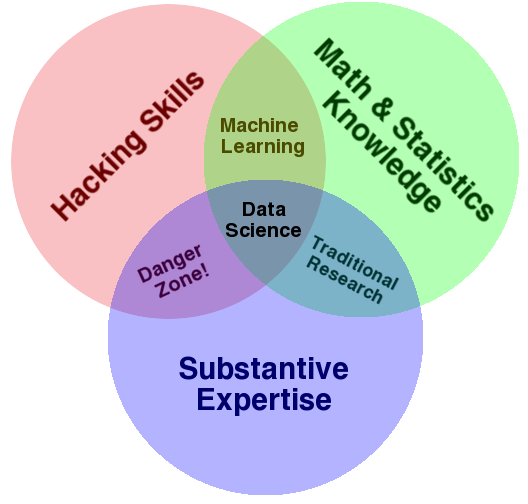First off, O'Reilly programming books are well-known (enough to be parodied) and if you are interested in one of those specific books there's a good chance it's a good one. I am particularly drawn to the Python book, the two Stats books and all of the $1 books. I heard the R reference is a bit outdated, but I'm sure it can be better at explaining some parts than Stack Overflow and a bunch of R docs. The 'Doing Data Science' book is basically a Data Science 101 course molded in book-form. I read the first part today. The author argues that a lot of people in academia and businesses are already doing data science, they just don't really see it that way. It is the very useful ability to manage, explore, analyse and visualize data. Unlike stats, data science requires that you combine those abilities with field knowledge to gain insight and solve real world problems. In my case, I want to use data science methods and concepts and apply it to transportation / urban problems. I never thought of it that way. It made me realize that my master thesis checks all those boxes and that I totally need to explore data science more. From how you're describing what you do, it sounds to me like you could also do well to dive deeper into data science.
"Danger Zone, Lana!" I would add business communications to the diagram for data scientists working in the corporate world. After transitioning from academic stuff to corporate clients, I noticed I needed to spend more and more time crafting my presentation and inquiry skills. Many times clients don't even know what kind of potential value they may have in their in-house data. They'll then neglect to mention something very valuable, like some data or a difficult problem well suited to data-oriented solutions, because they either consider unimportant or haven't considered it at all. Learning their language allows really opens up to potential of even basic DS/ML techniques.
The authors of that book also highlight the importance of communication for data scientists. It's not just your company-client communication that matters. Speaking from experience, I think interdisciplinary communication within a company is just as important if not more. There's an ignorance of what data can actually reveal in business. How many business actually use business intelligence tools? A while ago I talked to someone from one of the biggest ISPs in the country. They have 15,000 employees, yet only one person was looking into doing serious BI / geodata analysis.
We use BI Reporting as workarounds to our actual reporting systems not doing what we want them to do. It's a bit mind boggling.
The best way for me to learn a programming language is to give myself a problem that I want to solve with that language. For basics, Python has a lot of good resources - you can probably find one that matches your skill level relatively easily. Adding to Devac's options, I like Codecademy for the very basics, Automate the Boring Stuff for a hands-on way to learn Python, and Learn Python the Hard Way for the more rigorous approach.